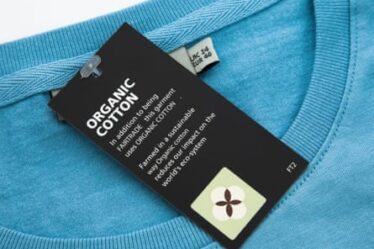
Large companies in the European Union will have to identify and take remedial action if they find their supply chains employing child labour or damaging the environment, the bloc’s lawmakers and council of member states agreed on Thursday.
The negotiations on the landmark EU law began on Wednesday and went into the early hours of Thursday as representatives sought agreement on contentious issues, in particular whether to include financial firms within rules that are expected to come into force around 2027.
“The Council and the European Parliament today reached a provisional deal on the corporate sustainability due diligence directive (CSDDD), which aims to enhance the protection of the environment and human rights in the EU and globally,” the council said in a statement.
In a win for EU states where similar national rules already exist, financial firms will be temporarily excluded from due diligence of clients who take out loans or make investments, and only have to check for forced labour or environmental harms within their own operations.
The exclusion from external due diligence would be reviewed at a later date.
The deal also strengthened obligations for large companies, including financial firms, to adopt and put into effect a transition plan with time-bound targets for climate change mitigation, which lawmakers had pushed for.
The law will override current voluntary net zero pledges at banks and other financial firms, which have largely failed, and fast track the sector to align with the Paris Agreement, said the World Benchmarking Alliance, which tracks sustainability of large companies.
Company director remuneration would have to reflect how well the plans have been implemented.
“Companies must make this link between those two things,” Lara Wolters, a lawmaker who helped to negotiate the deal, told reporters.
The rules will apply to companies in the EU that have more than 500 employees and a net worldwide turnover of €150 million ($163.25 million).
For non-EU companies it will apply if they have €300 million of net turnover generated in the bloc, three years from the rules coming into effect.
Fines for breaching the rules could be as much as 5 percent of a company’s global turnover.
“For the first time, there will be a comprehensive legal framework for communities anywhere in the world to sue companies responsible for human rights abuses and environmental harms in European courts,” said Global Witness, which campaigns against human rights abuses.
The law has raised corporate hackles as far afield as the United States because its scope encompasses several thousand companies that do business in the bloc but are headquartered elsewhere.
Critics have said it piles further reporting requirements on EU companies which must already comply with a separate set of environment, social and governance (ESG) disclosures from 2024, but the Council said the final text avoids duplication between the two sets of rules.
By Huw Jones
Learn more:
‘Substantial Volume’ of Clothing Tied to Uighur Forced Labour Entering EU, Says Study
Dozens of well-known brands including H&M and Zara are identified as being at high risk of sourcing materials, particularly cotton and PVC, made by Uighurs compelled to participate in state-imposed labour transfer programmes, according to a report from Uighur Rights Monitor, Sheffield Hallam University and the Uighur Centre for Democracy and Human Rights.



